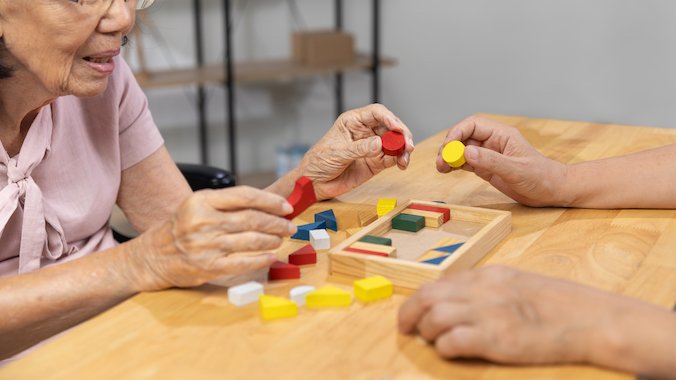
For the first time, University of Hawaiʻi at Mānoa researchers have studied how work, volunteering and leisure activities affect brain health in older adults from diverse backgrounds, while also factoring in a genetic risk factor for Alzheimer’s disease. The study, led by the Thompson School of Social Work & Public Health , shows that staying active can help keep the mind sharp with age.
The study is led by Yeonjung Jane Lee, assistant professor of social work, and was published in the Journal of Alzheimer’s Disease Reports . Researchers examine the connection between these activities and cognitive functioning, with a focus on the apolipoprotein E (APOE) ε4 allele-a genetic risk factor for Alzheimer’s disease, using data from more than 7,600 participants in the Health and Retirement Study, a nationally representative survey.
Key findings
The study found that working, volunteering and engaging in activities like word games, computer use and socializing improved cognitive health for everyone. However, the benefits depended on genetics. For those without the APOE ε4 allele, part-time work and high-intensity volunteering were most effective.
“Even if someone has the APOE ε4 allele, modifiable factors like cognitively stimulating activities can promote cognitive health,” said Lee. “These findings highlight how integrating such activities into older adults’ lives can support aging well.”
Researchers emphasize the importance of offering accessible activities to help reduce the impact of Alzheimer’s disease and other dementias, particularly in diverse populations.
The research was supported by the Kuakini Center of Biomedical Research Excellence-Center for Translational Research on Aging, directed by Bradley Willcox, a geriatric medicine researcher at the UH Mānoa’s John A. Burns School of Medicine .
The post How genetics, lifestyle promote cognitive health in older adults first appeared on University of Hawaiʻi System News .
Read More: Genetics, Lifestyle Boost Cognitive Health in Seniors


